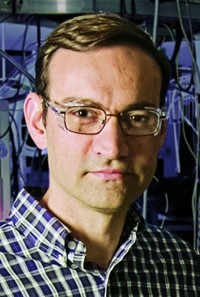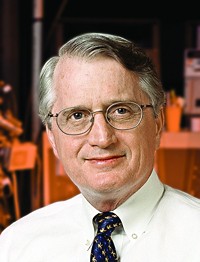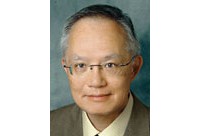Advertisement
Grab your lab coat. Let's get started
Welcome!
Welcome!
Create an account below to get 6 C&EN articles per month, receive newsletters and more - all free.
It seems this is your first time logging in online. Please enter the following information to continue.
As an ACS member you automatically get access to this site. All we need is few more details to create your reading experience.
Not you? Sign in with a different account.
Not you? Sign in with a different account.
ERROR 1
ERROR 1
ERROR 2
ERROR 2
ERROR 2
ERROR 2
ERROR 2
Password and Confirm password must match.
If you have an ACS member number, please enter it here so we can link this account to your membership. (optional)
ERROR 2
ACS values your privacy. By submitting your information, you are gaining access to C&EN and subscribing to our weekly newsletter. We use the information you provide to make your reading experience better, and we will never sell your data to third party members.
People
Arthur W. Adamson Award for Distinguished Service in the Advancement of Surface Chemistry
January 22, 2007
| A version of this story appeared in
Volume 85, Issue 4
Sponsored by Occidental Petroleum Corp.
Charles T. Campbell was captivated more than 30 years ago by the potential of surface chemistry to reveal molecular secrets about heterogeneous catalysis. "I was fascinated by the energy issues: the possibility of using catalysts to help the chemical industry run more efficiently," Campbell says. Three decades later, he's still hooked, and it's for the same reasons.
As an undergraduate student at the University of Texas, Austin, Campbell was introduced to surface science by chemistry professor John M. (Mike) White. "Mike was so inspirational in the way he taught," Campbell remarks, that "I just fell in love with the science." According to Campbell, the Texas professor had a knack for encouraging students and "always had positive things to say, no matter how badly you did."
The latter quality served Campbell especially well one afternoon when he "goofed" while trying to repair a leaking glass vacuum system. As Campbell recalls, after White had finished extensive glass-blowing work to assemble the equipment, Campbell checked the apparatus for leaks and found one. Deciding he could fix it without assistance, Campbell went to work with the glass-blowing torch. Unfortunately, "the whole thing just shattered," Campbell recalls. Always patient, White simply encouraged his student to keep working, Campbell says.
Eventually, Campbell gained recognition for developing surface methods and applying them to catalytic reactions, such as methanol synthesis on Cu/ZnO catalysts and dehydrogenation of hydrocarbons on platinum. He's also recognized for innovations in single-crystal adsorption microcalorimetry and for refining methods for quantitative surface analysis of high-surface-area catalysts.
As Texas A&M chemistry professor D. Wayne Goodman notes, Campbell has "melded" surface analysis and catalysis "into a single discipline" through his work in identifying reaction intermediates and pathways and in measuring absolute reaction rates. In addition, Goodman notes, Campbell "is one of few scientists who have succeeded in using this approach to obtain insightful results accessible to the catalysis community."
Campbell, 53, graduated in 1975 from the University of Texas, Austin, with a bachelor's degree in chemical engineering and completed his Ph.D. education there in 1979. From Texas, he went to the University of Munich, in Germany, where he conducted postdoctoral research with noted surface scientist Gerhard Ertl.
From 1981 to 1986, Campbell served as a staff scientist at Los Alamos National Laboratory, in New Mexico, and then began his academic career at Indiana University, Bloomington. He has been a professor of chemistry at the University of Washington, Seattle, since 1989.
Campbell has served on the editorial boards of the Journal of Catalysis, the Journal of Chemical Physics, and other journals, and he has held the position of editor-in-chief of Surface Science since 2002. He has been honored with several awards, including the ACS Award in Colloid or Surface Chemistry in 2001 and the Alexander von Humboldt Research Award in 2003.
The award address will be presented to the Division of Physical Chemistry and the Division of Colloid & Surface Chemistry.-Mitch Jacoby






Join the conversation
Contact the reporter
Submit a Letter to the Editor for publication
Engage with us on Twitter